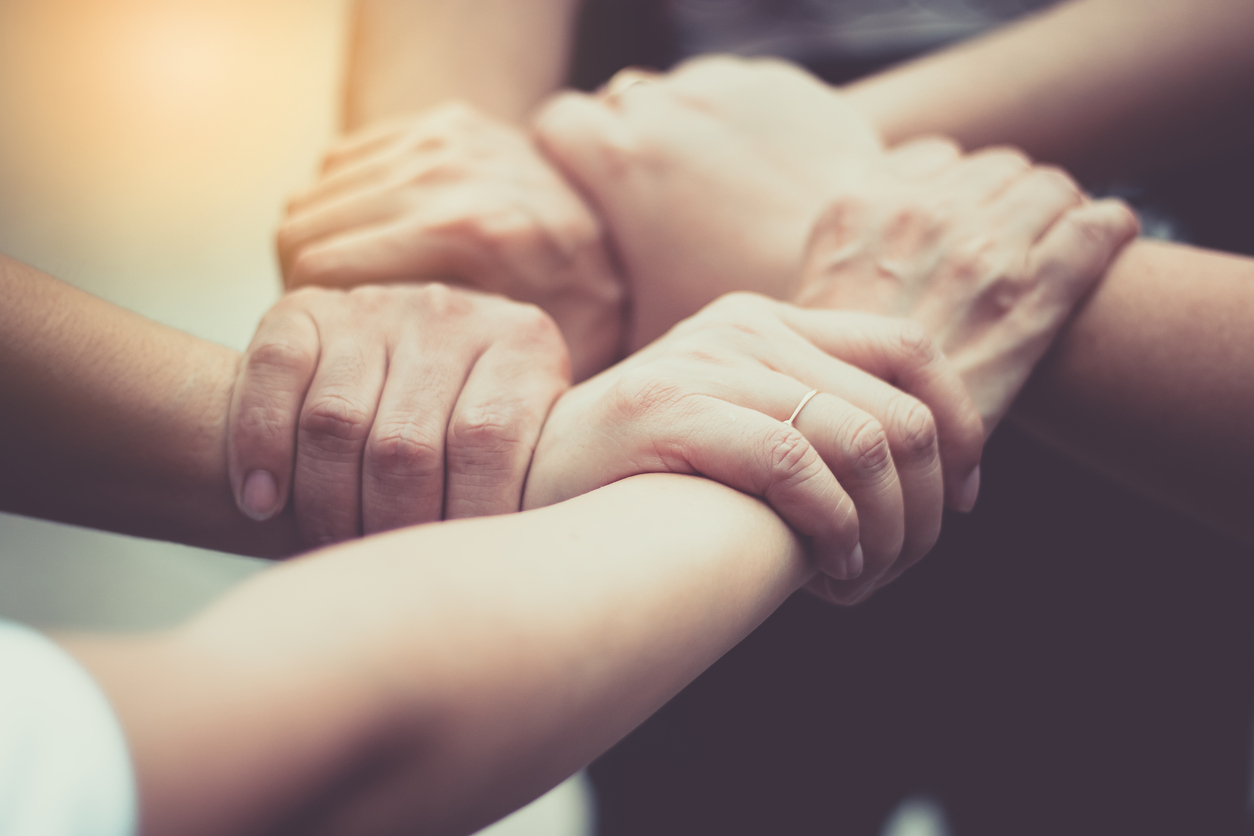He ain’t heavy – learning about a sibling’s DMD diagnosis

It’s common for patients to want to know more about what’s causing them to be ill and their DMD diagnosis and it’s the same for their families – however long that road may be.
Sofia [not her real name] is a young Spanish woman helping to care for her brother, who has Duchenne Muscular Dystrophy (DMD). Her path to knowledge has so far seen her study biotechnology and undertake a master’s degree in neuroscience. Now she’s determined to make DMD research the focus of work life.
She spoke to pharmaphorum about how her brother’s DMD diagnosis has given them a special bond, how the condition has affected his life and offered some tips for other siblings of DMD patients.
Dealing with a diagnosis of DMD
Like many young people in their mid-20s, Sofia likes to spend time with her family and friends at home in Spain and has a variety of hobbies. She goes trekking in the mountains north of Barcelona, visits the beach and goes to the cinema with her brother. But unlike most of her peers Sofia also helps care for him and manage his DMD.
Sofia’s brother was four years old when the symptoms of Duchenne Muscular Dystrophy (DMD) began to present themselves. She was too young to be conscious of the changes that were occurring, or how they would affect her whole family, so she was unaware of the extent of her parents’ visits to doctors or the tests her brother had to have. “I just remember one time when my aunt and I had to go to Barcelona to do a blood analysis that I didn’t understand very well at that time. Now I know that it was to do the genetic test to know if we are DMD carriers,” she said. “Some years later, my parents told me that at that time, in Spain it was very difficult to know which exact mutation he had. They had to travel to France with my brother’s blood sample to have it analysed there.”
It was difficulties getting up or climbing stairs that prompted Sofia’s parents to take her brother to their local GP. There he had a blood analysis, the results of which showed a very high level of CK (14788), and after that he was sent to Sant Joan de Déu, a children’s hospital in Barcelona, where a muscle biopsy showed a lack of dystrophin and led to his DMD diagnosis.
Armed with knowledge about a DMD diagnosis
“I wasn’t aware of my brother’s disease until a few years after the diagnosis when the symptoms were clearer. At the beginning, I didn’t have the courage to confront the fact that something was wrong, and it was very difficult for me to ask my parents what was happening. I was very afraid of knowing the reality and it was difficult for me to talk about it with anyone including family and friends, so I closed myself off a lot,” she said.
It was a difficult time for Sofia, one that acquiring knowledge about DMD initially worsened. “When I knew more about my brother’s situation and about DMD I felt very annoyed, I didn’t understand why it had to happen to my brother. I felt very frustrated and very sad when I thought about the disease and all the things that I couldn’t do with him. Also, I felt frightened to think about how he would progress over time.
Over time Sofia and her family have come to terms with her brother having DMD and, though they know he will never be able to completely overcome his condition, they’ve all worked hard to learn about the disease, how best to live with DMD and try to have a normal life.
As part of the process to get themselves to this stage, Sofia’s parents were put together with a local family whose son also had DMD. She explained: “That was very important to them to feel understood and to learn more information about DMD. After that, my father started talking to different parents in Spain to try to develop an association (Duchenne Parent Project Spain), and he contacted several European researchers and other patient associations.”
Living with DMD
“We will always hope that some cure for Duchenne appears or some treatment that can help him to delay the symptoms, but we try not to expect anything. My brother has his friends, he studies at university, he loves music, he goes out with his friends… as would a boy without the disease.”
He has needed a wheelchair since he was 12 years old and goes swimming and receives physiotherapy to help him manage his DMD symptoms. Sofia acknowledged that DMD has influenced her own life too, making her more responsible and changing her priorities, but she has always understood the reasons for that.
“I have a very nice and close relationship with my brother. I really love doing things with him, such as going to the cinema and travelling - at the beginning of this year we went on our own to Berlin. We watch television series together and talk about a lot of things,” she said, and added: “I think our relationship is special, most of my friends don’t have that type of relationship with their brothers.”
Prioritising the whole family
It’s important that families with a diagnosis of DMD really understand what the condition is. They should ask their doctors as many questions as possible, and also contact patient support organisations. These groups can not only supply information about the disease but are often also well equipped to provide psychological and social support and put families in touch with others in the same situation.
Asked about what tips Sofia would give to other siblings of DMD patients, she highlights the importance of prioritising their sibling, the rest of their family and also themselves. “Try to spend as much time as you can with your brother/sister. Talk to your parents about any questions or feelings you have with respect to your brother/sister - don’t cut yourself off. And, if you feel you aren’t receiving enough attention from your parents, talk to them - they are probably not aware of it because your brother/sister has different needs to you.”
Sofia concluded: “Do everything you can to make your brother/sister happy, but remember that you must be happy too and live your own life - because if you are happy everything will be easier, and your brother/sister and your family will be also happier.”
This article is part of a DMD Spotlight series produced by pharmaphorum in conjunction with Santhera Pharmaceuticals.
Read other articles in this series:
Lights, camera, action - DMD and chasing your dreams
Living with DMD: Inspiring each other's futures
Living with DMD: Ensuring equal access to quality of life











